List of Hobbies and Interests can play a subtle yet impactful role in enhancing your resume. While they might seem secondary to skills and experience, the right hobbies and interests can showcase your personality, values, and cultural fit for a company. Understanding the difference between the two is key—hobbies reflect what you do for fun, while interests show what engages your curiosity or passion. In this blog, we’ll explain the distinction clearly and provide a thoughtful list of hobbies and interests you can include to add depth and individuality to your resume.
Table of Contents
ToggleWhat are Hobbies and Interests?
Hobbies and interests are activities or pastimes that individuals engage in for pleasure, relaxation, and personal fulfillment outside of their work or other responsibilities. These activities reflect a person’s passions, preferences, and areas of curiosity. These are activities that generally relieve you from stress, tension or fatigue. Hobbies and interests are essential for maintaining a balanced and fulfilling life, as they provide an outlet for creativity, stress relief, and personal growth.
What is the Difference Between Hobbies and Interests?

A hobby is a leisure activity that one does regularly. It brings enjoyment and often serves as a means of relieving stress, tension, or fatigue. An interest, on the other hand, represents an activity that one has a desire to do but doesn’t do regularly.
| Aspect | Hobbies | Interests |
|---|---|---|
| Definition | Activities you actively engage in | Subjects you're curious about |
| Action-Oriented? | Yes, requires active participation | Not always, can be passive |
| Skill Development | Often leads to skill improvement | May or may not involve skill development |
| Examples | Playing guitar, gardening, coding | Interest in space, finance, technology |
| Resume Relevance | Shows hands-on engagement | Highlights curiosity and learning attitude |
| Time Commitment | Regular or frequent activity | Occasional or evolving over time |

Top 15 Hobbies and Interests to Put on Your Resume
Volunteering
Volunteering demonstrates empathy, leadership, and community engagement. It signals teamwork and a commitment to social responsibility—qualities valued in roles requiring collaboration or client-facing interactions. Listing specific initiatives (e.g., “Food Bank Coordinator”) adds credibility.Blogging/Writing
Maintaining a blog or writing articles highlights communication skills, expertise in niche topics, and self-discipline. It’s ideal for marketing, content creation, or research roles, showcasing your ability to articulate ideas and engage audiences.Photography
Photography emphasizes creativity, attention to detail, and technical proficiency. It’s relevant for design, marketing, or project-based roles where visual storytelling matters. Mention equipment/software (e.g., Photoshop) to underscore skill depth.Learning Languages
Fluency in multiple languages reflects cultural intelligence and adaptability, crucial for global companies or customer support. It signals cognitive agility and dedication—e.g., “Conversational Spanish” shows initiative beyond workplace requirements.Team Sports (e.g., Soccer, Basketball)
Team sports underscore collaboration, leadership, and resilience. Highlighting roles like “Team Captain” implies strategic thinking and conflict-resolution skills, aligning with management or dynamic work environments.Reading
Regular reading (especially industry-related books) signals curiosity, continuous learning, and critical thinking. Specify genres like “Business Biographies” or “Tech Journals” to align with roles valuing research and innovation.Traveling
Travel showcases adaptability, cultural awareness, and problem-solving (e.g., navigating unfamiliar settings). It’s compelling for international business or creative roles, illustrating openness to diverse perspectives.Playing Musical Instruments
Mastering an instrument requires discipline, creativity, and patience. It implies structured practice and precision—traits transferable to analytical or detail-oriented fields like coding or project management.Coding/Programming
Personal coding projects (e.g., building apps) prove technical prowess and initiative. This hobby is gold for tech roles, demonstrating hands-on experience beyond formal education and a problem-solving mindset.Gardening
Gardening reflects patience, planning, and sustainability focus. It’s subtle but effective for roles needing project management (e.g., nurturing long-term growth) or environmental sectors, emphasizing responsibility.Cooking/Baking
Culinary hobbies highlight creativity, multitasking, and precision under pressure. Mention teamwork (e.g., “Weekly Supper Club”) to stress collaboration. Ideal for hospitality, event planning, or fast-paced industries.Painting/Drawing
Artistic pursuits showcase innovation, attention to detail, and unique problem-solving. They humanize technical resumes (e.g., engineers) and stand out in design, advertising, or roles valuing unconventional thinking.Chess/Strategy Games
Chess underscores analytical skills, foresight, and decision-making. It’s persuasive for finance, consulting, or leadership roles, proving you can anticipate challenges and strategize effectively.Hiking/Outdoor Activities
Hiking signals resilience, goal-setting (e.g., summiting peaks), and stress management. It implies physical stamina and perseverance—traits prized in high-pressure sales, fieldwork, or startup cultures.Public Speaking
Participation in Toastmasters or debate clubs proves confidence, articulation, and leadership. Crucial for executives, trainers, or client-facing roles, it highlights your ability to persuade and present ideas clearly.
25 Additional Hobbies & Interests
16. Yoga: Demonstrates discipline, stress resilience, and work-life balance.
17. Meditation: Signals emotional intelligence and focus.
18. Running: Highlights goal-setting (e.g., marathons) and endurance.
19. Cycling: Shows commitment to perseverance and teamwork in group rides.
20. Dancing: Reflects creativity, coordination, and cultural appreciation.
21. Acting: Emphasizes empathy, improvisation, and public presence.
22. Singing: Reveals teamwork (choirs) and confidence.
23. Pottery: Illustrates patience and meticulous craftsmanship.
24. Knitting/Crocheting: Shows attention to detail and project completion.
25. Collecting (e.g., Coins, Art): Highlights research skills and niche expertise.
26. Board Games: Proves strategic thinking and social interaction.
27. Video Gaming (Strategy-based): Demonstrates problem-solving and teamwork.
28. Fishing: Signals patience and planning.
29. Bird Watching: Reflects observation skills and curiosity.
30. DIY Projects: Showcases resourcefulness and hands-on problem-solving.
31. Homebrewing: Illustrates precision and scientific curiosity.
32. Astronomy: Emphasizes analytical thinking and passion for learning.
33. Scuba Diving: Signals certification dedication and risk assessment.
34. Martial Arts: Proves discipline, respect, and self-improvement.
35. Podcasting: Highlights communication and technical editing skills.
36. Graphic Design: Shows creativity and software proficiency (e.g., Adobe Suite).
37. Woodworking: Reflects precision and project management.
38. Wine Tasting: Signals sensory analysis and continuous learning.
39. Calligraphy: Demonstrates attention to detail and artistic discipline.
40. Stand-Up Comedy: Reveals quick thinking and audience engagement.

Key Considerations for Your Resume
Tailor to the Role: Match hobbies to job requirements (e.g., coding for tech, team sports for leadership).
Be Specific: Avoid generic lists; add context like “Volunteered 5 hrs/week at X.”
Avoid Controversial Picks: Skip hobbies like gambling or political activism.
Show Skills, Not Just Interests: Frame each item to highlight transferable abilities (e.g., “Gardening: Managed seasonal planting schedules”).
Attractive Hobbies and Interests to Include in a Resume
- playing sports (such as football, tennis, hockey, or cricket),
- engaging in strategic games like chess, sudoku and puzzle solving,
- indulging in reading and writing books or articles,
- exploring new places through travel,
- expressing creativity through design, drawing, sketching, and painting, or honing
- culinary skills through cooking and baking.
- volunteering at local companies, clubs, or organizations,
- taking an active role in community event organizations,
- participating in fundraising events for charitable causes, or
- joining professional, social, or environmental groups.
Are you wrestling with the decision of whether or not to include hobbies and interests on your resume? Do you find yourself pondering which hobbies could make your CV stand out among the competition? In this blog, we’ll delve into the labyrinth of hobbies and interests in resumes, providing you with examples, tips, and answers to your perplexing questions.
Should I Put Hobbies and Interests on My Resume?
The answer to this question “Should I Put Hobbies and Interests on my Resume” is a resounding “yes,” but with a twist. Including hobbies and interests on your resume can be a powerful tool if used strategically. While your professional experience and qualifications take center stage, hobbies and interests can add depth to your profile, showcasing your personality, skills, and compatibility with the company culture.
Why Include Hobbies and Interests in My Resume?
Showcasing Personality: Employers aren’t just looking for skills and qualifications; they want to know who you are as a person. Hobbies and interests provide a glimpse into your personality, making you more relatable.
Highlighting Transferable Skills: Many hobbies develop skills that are transferable to the workplace. For example, if you’re an avid mountain climber, it demonstrates perseverance, determination, and the ability to work under pressure.
Fitting into Company Culture: Some companies prioritize cultural fit. Your hobbies can reveal whether you’d integrate seamlessly into their work environment.
Icebreakers: In interviews, recruiters often start by asking about your hobbies. Having an interesting hobby can help break the ice and create a memorable first impression.
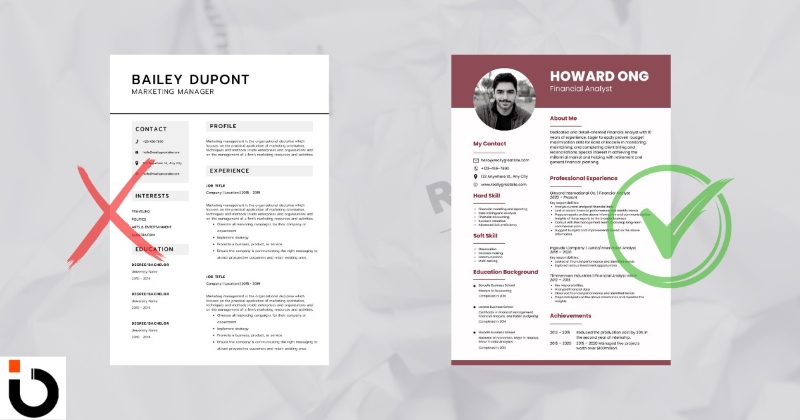
Examples of Hobbies for Resume for Freshers
Now, let’s unlock the treasure chest of hobby examples that could bolster your resume. List of hobbies in resume for freshers:
Volunteering: Demonstrates your commitment to social causes and community involvement.
Blogging or Writing: Highlights your communication skills and passion for written expression.
Sports and Fitness: Shows dedication, discipline, and a desire for a healthy lifestyle.
Creative Arts: Illustrates your creativity and attention to detail, whether it’s painting, photography, or playing a musical instrument.
Language Learning: Exhibits your ability to adapt, learn, and embrace different cultures.
Cooking or Culinary Arts: Demonstrates your creativity and attention to detail, as well as your ability to follow complex processes.
Travel: Suggests an adventurous spirit and adaptability to different environments.
Gaming: Emphasizes strategic thinking, teamwork, and problem-solving abilities, especially in collaborative online games.
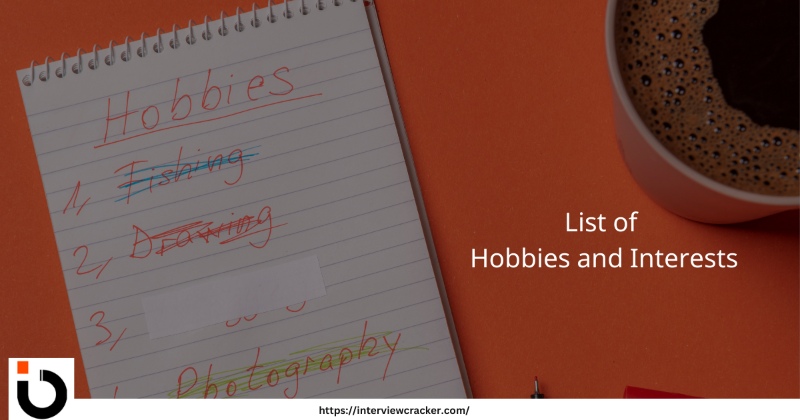
Hobbies For Men | Hobbies Showcasing Leadership & Technical Skills
(Traditionally perceived as "masculine" but valuable for all genders)
Team Sports (e.g., Rugby, Basketball)
Demonstrates collaboration, strategic leadership, and resilience under pressure—ideal for management or client-facing roles.DIY Projects/Home Renovation
Highlights problem-solving, resourcefulness, and hands-on technical ability; relevant for engineering, operations, or project management.Coding/Game Development
Proves initiative in technical skill-building beyond formal training; critical for IT, analytics, or innovation-driven fields.Chess/Competitive Strategy Games
Signals analytical thinking, foresight, and decision-making—key for finance, consulting, or tactical roles.Woodworking/Metalworking
Showcases precision, patience, and project management; aligns with manufacturing, design, or quality control.
Hobbies for Women | Hobbies Highlighting Creativity & Communication
(Traditionally perceived as "feminine" but valuable for all genders)
Blogging/Content Creation
Illustrates writing proficiency, audience engagement, and niche expertise; essential for marketing, PR, or editorial roles.Gardening/Urban Farming
Reflects planning, sustainability focus, and nurturing long-term growth; suits environmental, education, or project-based roles.Calligraphy/Graphic Design
Demonstrates attention to detail, artistic discipline, and software skills (e.g., Procreate, Adobe Suite); ideal for creative industries.Cooking/Baking (e.g., Supper Clubs)
Emphasizes multitasking, creativity, and teamwork under deadlines; relevant for hospitality, events, or fast-paced environments.Knitting/Textile Arts
Shows meticulous craftsmanship and project completion—transferable to roles requiring precision (e.g., data analysis, production).
How to Describe Hobbies and Interests on Your Resume?
Now that you’ve decided to include hobbies and interests on your resume, the next challenge is how to describe them effectively:
Be concise: Keep your descriptions brief, focusing on the skills and qualities they showcase.
Relevance: Ensure that your hobbies align with the job you’re applying for. Tailor your choices to the specific position and company culture.
Highlight transferable skills: Explain how your hobbies have honed skills that are relevant to the job. For instance, if you’re applying for a project management role, you can emphasize how your love for chess has sharpened your strategic thinking and planning abilities.
Show passion: Use enthusiastic language to convey your genuine interest in your hobbies. Passion is contagious and can make your resume more memorable.
Best Hobbies in Resumes- For Freshers
If you’re a fresher with limited work experience, your hobbies can take on greater significance. Consider these hobbies to bolster your resume:
Internships and Part-Time Jobs: While technically not hobbies, these experiences demonstrate your initiative and work ethic.
Online Courses and Certifications: Show that you’re proactive in self-improvement and skill development.
Blogging or Personal Projects: Highlight any personal blogs, websites, or projects that reflect your interests and skills.
Leadership in Campus Clubs: If you held leadership positions in clubs or organizations during your academic years, it showcases leadership and teamwork abilities.

How to Write Hobbies on a CV
When including hobbies on a CV, it’s essential to strike a balance between showcasing your personality and highlighting relevant skills. Start by listing a few hobbies that are directly related to the job or demonstrate skills such as teamwork, leadership, or creativity, especially if they align with the job description.
Location of Hobbies Section in CV/Resume
The location of the hobbies section in a CV or resume can vary depending on personal preference and the specific template you’re using.
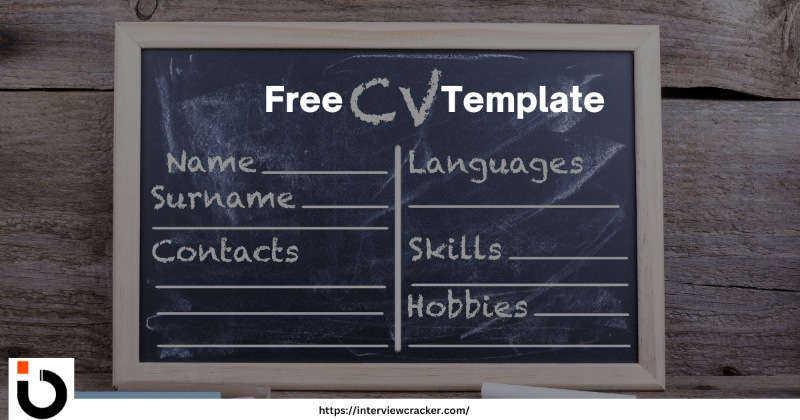
Things to Avoid When Writing Your Hobbies Section
Remember that the goal of including hobbies is to provide a well-rounded picture of yourself and potentially highlight skills or traits that make you a strong candidate for the job. Be thoughtful and selective in your choices to ensure that your hobbies contribute positively to your application.
List of Interests in Resume for Freshers
When creating a resume as a fresher, it’s important to highlight your are of interests and activities that are relevant to the job you’re applying for. Your interests can give potential employers a sense of your personality, your ability to work in a team, and your passion for certain subjects or activities. Here is a list of interests that you can consider including on your resume, but remember to tailor them to align with the job you’re seeking:
- Relevant Hobbies: If you have hobbies or interests that are directly related to the job, such as coding, graphic design, or writing, be sure to mention them.
- Volunteer Work: Any volunteer experience can show your commitment to social causes and community involvement.
- Professional Associations: Mention memberships in organizations related to your field of study or career goals.
- Sports and Athletics: Highlight team sports or athletic activities that demonstrate teamwork, leadership, and discipline.
- Creative Pursuits: If you’re into painting, music, or other creative endeavors, it can showcase your artistic skills and creativity.
- Languages: Mention if you are fluent in multiple languages, especially if the job requires bilingual skills.
- Reading and Writing: Indicate if you’re an avid reader or enjoy writing as it can demonstrate strong communication skills.
- Technology and Gadgets: Mention your interest in technology or staying up-to-date with the latest gadgets if it’s relevant to the job.
- Travel: Travel experiences can indicate your adaptability and exposure to different cultures.
- Leadership Roles: If you’ve held leadership positions in student organizations, clubs, or teams, highlight them to showcase your leadership skills.
- Entrepreneurial Interests: If you have entrepreneurial aspirations or have been involved in startup projects, mention them.
- Environmental or Sustainability Interests: If you are passionate about environmental issues or sustainability, it can be relevant in many industries.
- Public Speaking or Debate: If you’ve participated in public speaking, debate clubs, or Model United Nations, it can highlight your communication and argumentation skills.
- STEM Interests: For science, technology, engineering, or math-related positions, emphasize any STEM-related clubs or activities you’ve been involved in.
- Artistic and Creative Pursuits: Mention any art exhibitions, photography, or graphic design work if applicable to the job.
- Fitness and Wellness: Participation in fitness or wellness activities can demonstrate discipline and a commitment to health.
- Community Service: Any involvement in community service or charity work can show your dedication to making a positive impact.
- Online Courses and Certifications: If you’ve taken online courses or earned certifications in relevant areas, mention them to demonstrate your commitment to learning and skill development.
Remember that the key is to select interests that align with the job you’re applying for and to showcase how these interests have equipped you with transferable skills or qualities that would benefit the employer. Additionally, don’t list too many interests; focus on the most relevant ones to keep your resume concise and impactful.
List of Hobbies for Interview for Freshers & Experienced
When you’re asked about your hobbies in an interview, it’s an opportunity to showcase your personality and interests outside of work. Don’t mention more than 1-2 hobbies. Here is a list of hobbies for freshers and experienced that you can consider mentioning during an interview:
What are your hobbies? example answers:
- Reading: Mentioning that you enjoy reading can show your commitment to self-improvement and knowledge acquisition.
- Sports: Whether it’s playing a sport like basketball or soccer, or following a sports team, this can highlight your teamwork, discipline, and competitive spirit.
- Cooking or Baking: This hobby can reflect your creativity and attention to detail. You can be expert in niche area like Seeds Recipes.
- Gardening: Gardening demonstrates patience, dedication, and a love for the outdoors.
- Hiking or Outdoor Activities: Enjoying the outdoors can convey a sense of adventure, physical fitness, and a love for nature.
- Volunteering: Volunteering for a cause you’re passionate about can reflect your commitment to community and social responsibility.
- Music: Whether you play an instrument, compose music, or simply enjoy listening to music, this hobby can reveal your creative side and dedication.
- Art and Painting: Indulging in artistic pursuits showcases your creativity and attention to detail.
- Photography: Photography demonstrates an eye for detail, composition, and the ability to capture moments.
- Travel: Mentioning your love for travel can show your curiosity, adaptability, and exposure to different cultures.
- DIY Projects: Engaging in do-it-yourself projects demonstrates problem-solving skills, creativity, and a hands-on approach.
- Yoga or Meditation: Practicing yoga or meditation can signify your commitment to mental and physical well-being.
- Gaming: Video games, board games, or puzzles can demonstrate problem-solving, strategic thinking, and teamwork.
- Dancing: Dancing showcases your physical coordination, discipline, and creativity.
- Writing: Whether it’s blogging, journaling, or creative writing, this hobby can reveal your communication skills and creativity.
- Camping: Camping and outdoor adventures can highlight your love for nature, teamwork, and adaptability.
- Collecting: Mentioning a collection hobby, like collecting coins, stamps, or memorabilia, can showcase your attention to detail and dedication.
- Sewing or Knitting: These hobbies demonstrate your patience, attention to detail, and creative skills.
- Bird Watching: If you’re a bird enthusiast, this hobby shows your patience, curiosity, and appreciation for the natural world.
- Scuba Diving: Scuba diving can convey a sense of adventure and comfort in challenging environments.
When discussing your hobbies in an interview, try to connect them to relevant skills or qualities that would make you a great fit for the job. For example, if you’re applying for a job that requires attention to detail, you could mention how your hobby, like painting or sewing, reflects that characteristic. Always be genuine and enthusiastic when discussing your hobbies, as it can help the interviewer get to know you better beyond your professional qualifications.
What to Include as Activities for Resume for Freshers?
When creating a resume as a fresh graduate or someone with limited work experience, it’s essential to highlight your skills, achievements, and activities that demonstrate your qualifications and potential. Here are some activities
Projects: Mention any significant academic or personal projects that demonstrate your skills and knowledge. Provide details about your role, what you achieved, and the technologies or tools you used.
Internships: If you have completed internships or part-time jobs, create a section highlighting the company, your role, and your accomplishments during these experiences.
Volunteer Work: Include any volunteer activities you’ve been involved in, particularly if they are related to the job or industry you’re targeting. Emphasize the skills and responsibilities you gained.
Extracurricular Activities: Mention clubs, organizations, or leadership roles you held during your time in school. This can showcase teamwork, leadership, and organizational skills.
Awards and Honors: If you received academic awards or recognitions, list them in a separate section to showcase your achievements.
Skills: Create a skills section that lists both hard skills (e.g., programming languages, software, or technical skills) and soft skills (e.g., communication, teamwork, problem-solving) that are relevant to the job you’re applying for.
Certifications: Include any relevant certifications or courses you’ve completed, even if they are not part of your formal education.
Languages: If you’re proficient in multiple languages, mention them, as this can be a valuable asset, especially in a global job market.
Professional Associations: If you are a member of any professional organizations or associations related to your field, include this information.
Hobbies and Interests: While optional, mentioning hobbies or interests can provide insights into your personality and what you’re passionate about. However, be selective and ensure they are relevant or show desirable qualities.
When listing your activities and experiences, focus on achievements, responsibilities, and skills gained rather than just listing the activities themselves. Tailor your resume for each job application, emphasizing the activities and experiences most relevant to the specific position you’re targeting. Additionally, use action verbs, quantifiable results, and a clean, well-organized format to make your resume more compelling.

How to Write Cooking As a Hobby in Resume?
To write cooking as a hobby on your resume, include it in the “Hobbies and Interests” section. Be concise and specific, and consider highlighting any relevant skills or achievements related to cooking. For example:
Hobbies and Interests: Cooking –
- Proficient in preparing a wide range of cuisines
- Creative with recipe development,
- Experienced in meal planning and hosting culinary events.
- Enjoy cooking with healthy seeds
How to Write GYM as a Hobby in Resume?
In the “Hobbies and Interests” section of your resume, you can mention your interest in the gym concisely and positively. For example:
“Hobbies and Interests: Fitness Enthusiast: Regularly engage in gym workouts to maintain a healthy and active lifestyle.”
Keep it brief and relevant to showcase your commitment to a healthy lifestyle without taking up too much space on your resume.
Conclusion
The inclusion of hobbies and interests on your resume is a puzzle worth solving. When approached thoughtfully and strategically, they can set you apart from the competition, providing a well-rounded picture of who you are as a candidate. So, go ahead, unveil the enigma, and craft a resume that truly reflects your unique qualities and passions. By doing so, you’ll be well on your way to impressing potential employers and landing your dream job.
FAQs for Hobbies and Interests in Resume
1. What hobbies and interests should I include on my resume?
When choosing hobbies and interests for your resume, consider activities that showcase your skills, strengths, and personality traits relevant to the job you’re applying for. Examples include volunteering, language learning, outdoor activities, creative pursuits, and community involvement.
2. Are hobbies and interests necessary on a resume?
While not mandatory, including hobbies and interests can add depth and personality to your resume, helping you stand out from other candidates. They can also provide conversation starters during interviews and offer insights into your character and values.
3. How do hobbies and interests differ from each other on a resume?
Hobbies typically refer to activities pursued for pleasure or relaxation, while interests are subjects or topics that capture your attention and curiosity. Including both hobbies and interests on your resume allows you to showcase a range of personal pursuits and passions.
4. Do hobbies and interests impact my chances of getting hired?
Hobbies and interests can indirectly influence your chances of getting hired by demonstrating qualities such as teamwork, creativity, leadership, and cultural awareness. Employers may appreciate candidates who show well-roundedness and diverse interests beyond their professional qualifications.
5. How do I decide which hobbies and interests to include on my resume?
Consider the relevance of your hobbies and interests to the job and company culture. Choose activities that reflect positively on your character and align with the skills and attributes sought by potential employers. Tailor your selection based on the job requirements and industry norms.
6. Is Going to The Gym a Hobby?
Yes, going to the gym can be considered a hobby for many individuals who enjoy physical fitness and exercise. and you can very well include in your resume too.

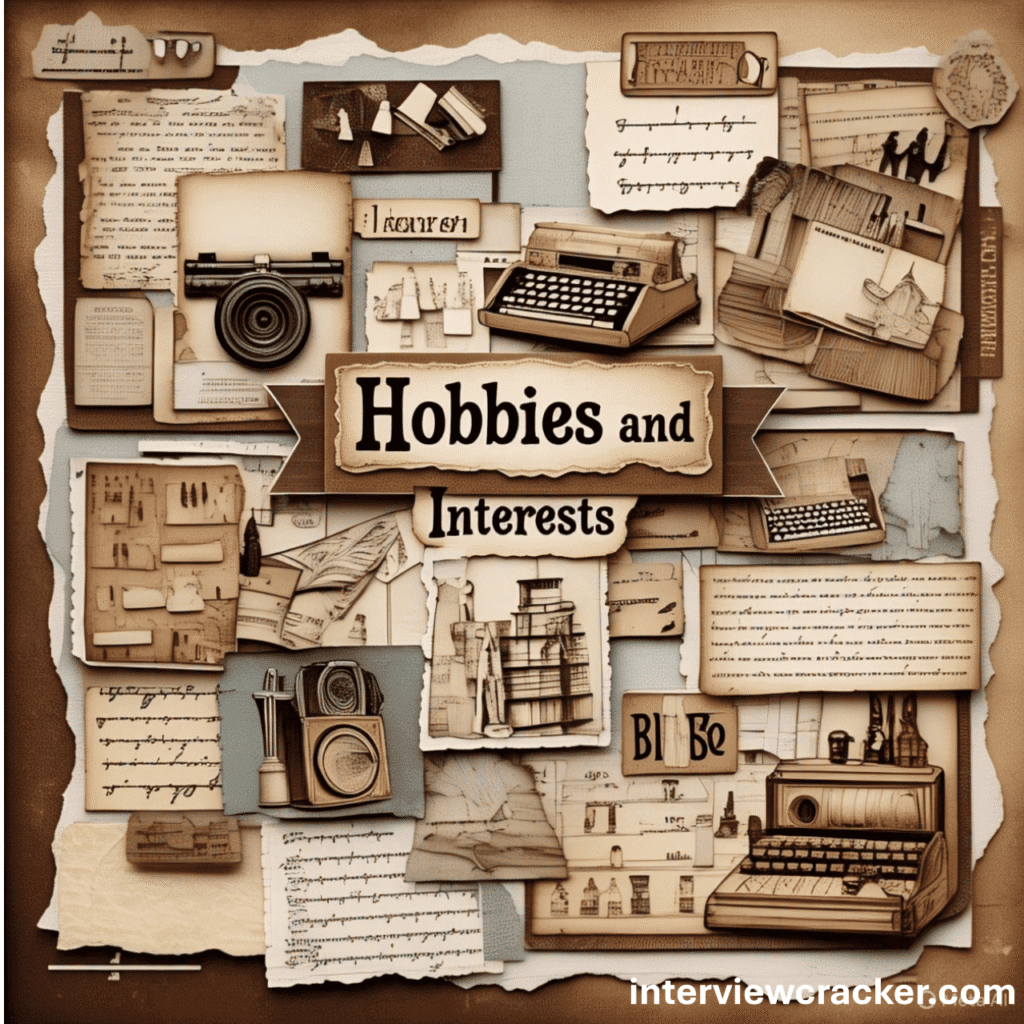
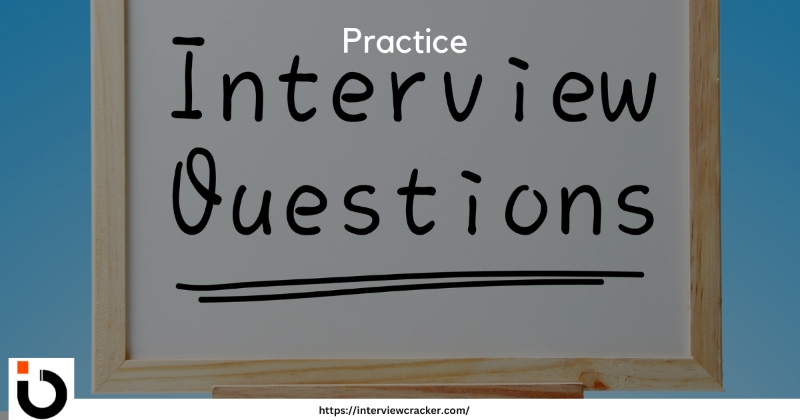

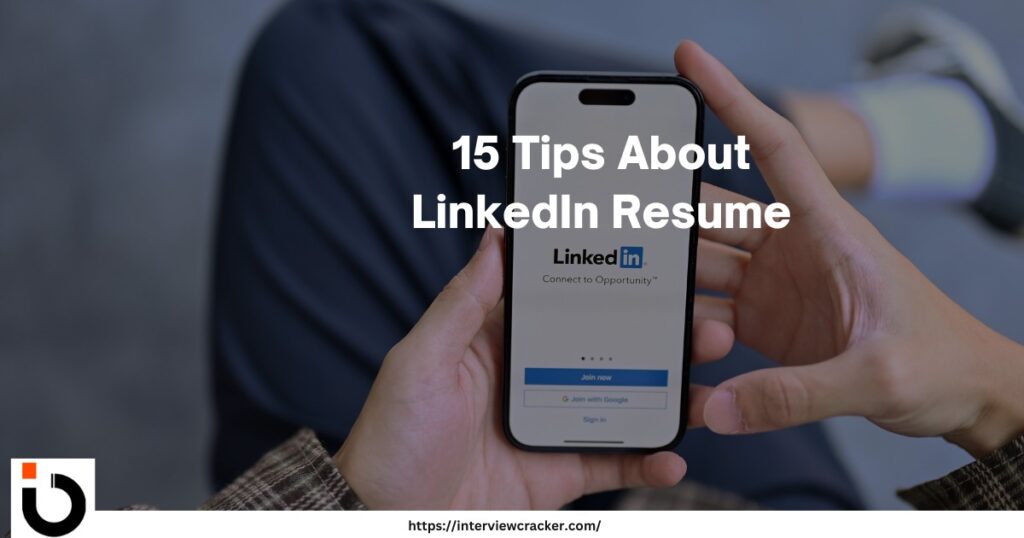

This post is incredibly helpful! I never realized how important it is to differentiate between hobbies and interests on a resume. The examples you provided have inspired me to rethink how I present my personal interests to potential employers. Thanks for the practical tips!